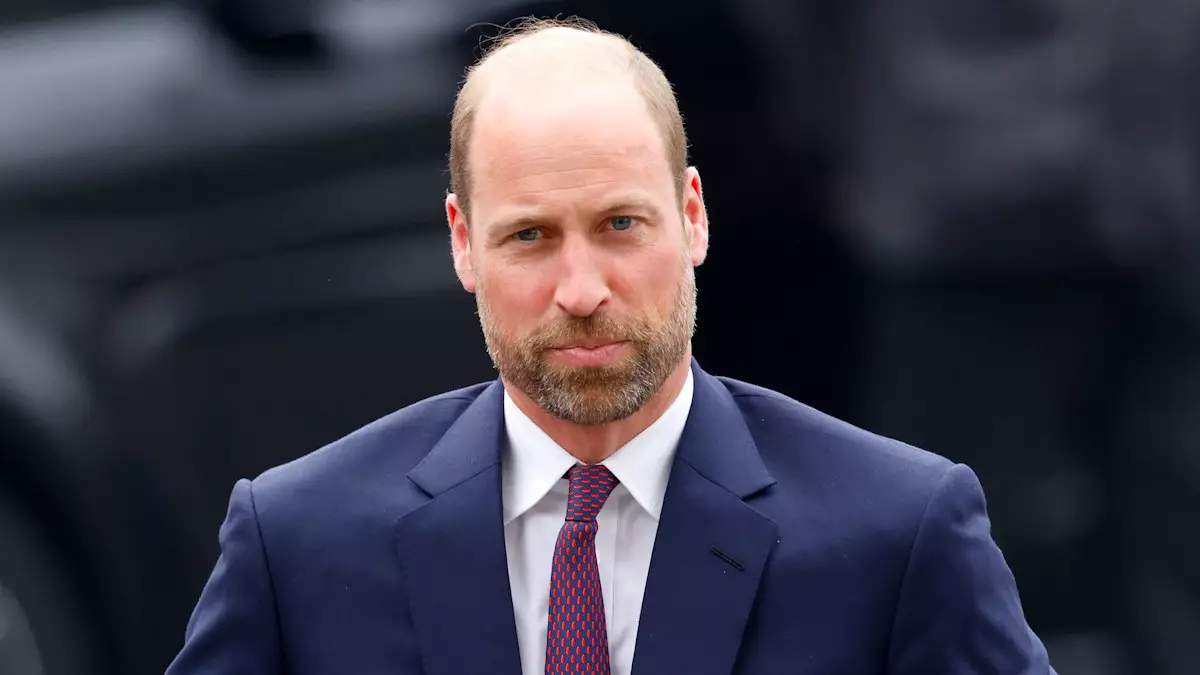In a world where royal responsibilities often overshadow personal passions, the Prince of Wales, Prince William, breaks the mold with his heartfelt devotion to Aston Villa. This Easter holiday, as the Prince and his wife, Kate Middleton, prepare to take a break from their official duties, the spotlight shines on William’s commitment not only to his family but also to his beloved football club. In a recent appearance at Villa Park, he showcased the essence of modern royalty, where personal interests blend seamlessly with public life.
William’s attendance at Aston Villa’s match, where they triumphed with a 3-0 victory against Club Brugge, further cemented his status as a fervent football fan. His enthusiastic presence is reminiscent of more casual supporters rather than his lofty royal title. The stakes have been raised as Villa prepares to take on the formidable Paris Saint-Germain in the upcoming Champions League quarter-finals, and the Prince has announced with excitement, “See you in Paris!” to journalists as he departed the stadium. This moment is a reminder that even royals relish the thrill of the game, and his commitment to support the team, especially in foreign lands, embodies a refreshing sentiment about duty and leisure.
Football Fan Meets Hollywood: A Unique Invitation
As the rivalry intensifies, it’s not just football on the schedules of the royals and sports fans alike; it also signifies a budding relationship between British royalty and global celebrities. The President of Paris Saint-Germain, Nasser Al-Khelaifi, has thrown in a royal invite for both William and his A-list friend, Tom Hanks, for the showdown in the French capital. This crossover between the world of sports and entertainment deepens the narrative of modern monarchy, as it intertwines with popular culture, allowing an even broader audience to engage with royal activities.
Al-Khelaifi was dined alongside David Beckham at a recent state banquet at Buckingham Palace, indicating an evolving camaraderie between the royals and the football industry. These social connections are not merely trivial encounters; they pave the way for cultural exchanges that signify the royal family’s evolving role in contemporary society. They open doors for new partnerships, increased tourism, and collaborative ventures that reflect a modern monarchy, accommodating varied influences while maintaining dignity.
Superstitions and Family Traditions: An Honest Side of Royal Life
William’s candid revelations about his quirky superstitions while watching matches add a charming layer to his public persona. His interview with The Sun provided a glimpse into the royal household’s blend of tradition and personal quirks. The Prince humorously remarked on how he shifts locations in his home, hoping for a better fortune for his team. This charming anecdote is a delightful departure from the polished, often stiff nature of royal life, illustrating that underneath the grandeur, there are relatable family dynamics at play.
Furthermore, his open approach towards his children’s potential football affiliations is both refreshing and respectful of their individuality. While the kids own Aston Villa jerseys, William emphasizes that he prefers they discover their passions rather than imposing his own preferences on them. This perspective is not only about football; it mirrors a broader philosophy of parenthood that encourages autonomy and personal discovery within the framework of royal expectations.
The Unbreakable Bond of Sport and Family Legacy
The fabric of William’s connection to Aston Villa goes beyond mere fandom; it is steeped in cherished memories of a childhood that involved joyful family outings to matches. This lineage of love for the game creates an emotional narrative that transcends royal duties, spotlighting how sport often brings families together, fostering a sense of belonging and identity. The fact that his son George has started attending games alongside him indicates a budding legacy—a shared experience that may one day shape the next generation of football fans and the royal family’s relationship with the sport.
Indeed, as William balances his royal obligations with moments of cherished family time spent cheering for Aston Villa, he exemplifies a modern interpretation of royalty. He champions not only a team but also the values of passion, family bonds, and cultural engagement, offering a relatable image that resonates with many outside the palatial walls of Kensington. His journey through the realm of football is not merely a personal interest but rather a bridge that connects him to the hearts of the public.

